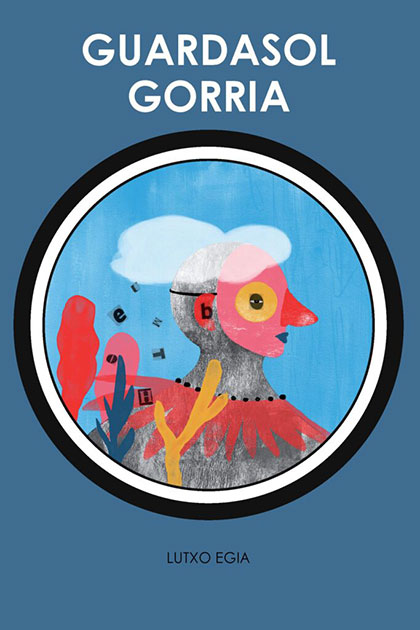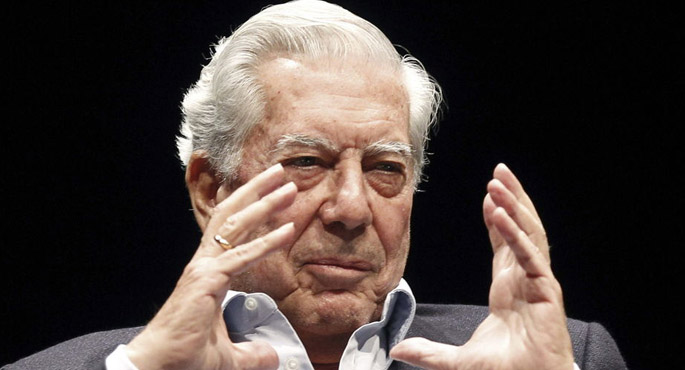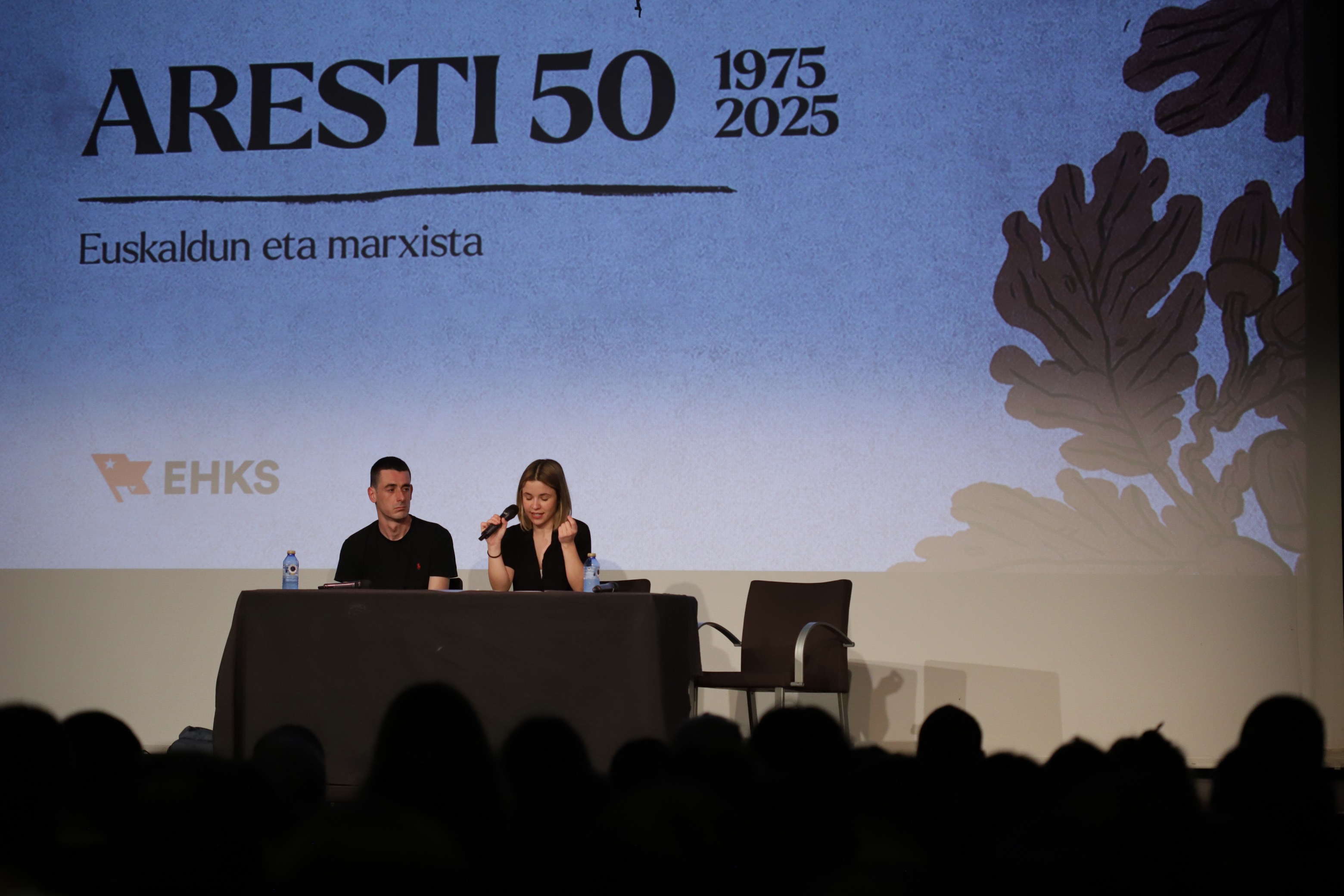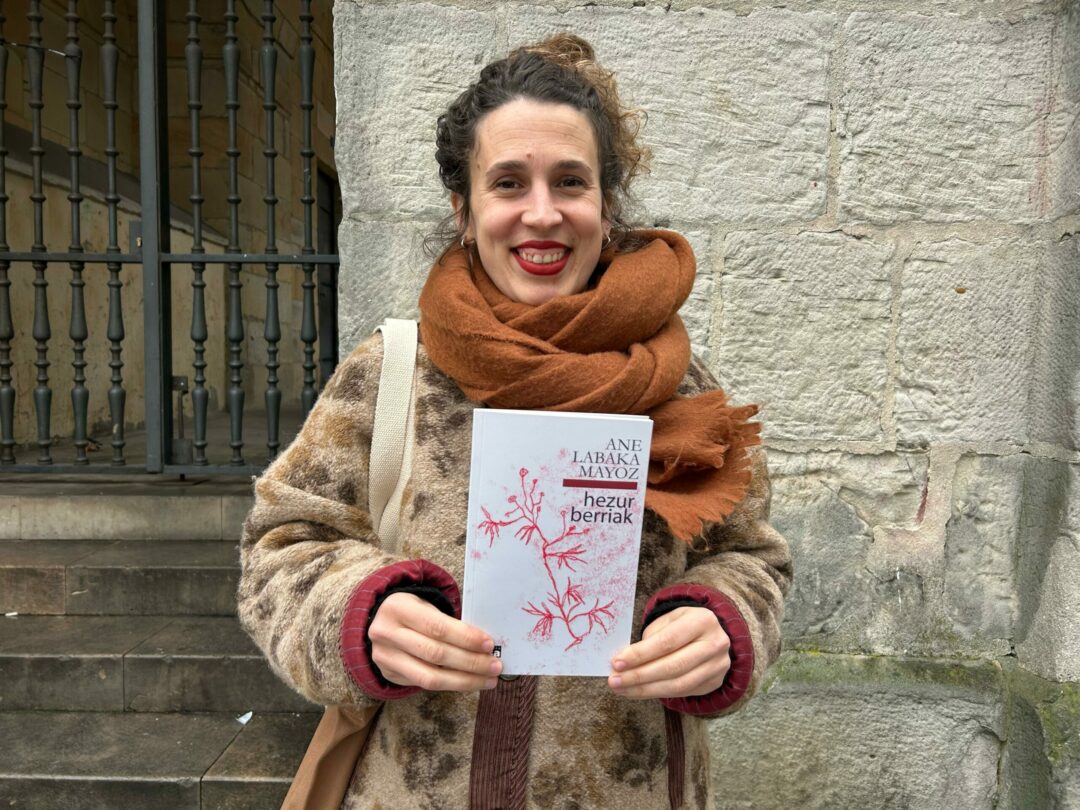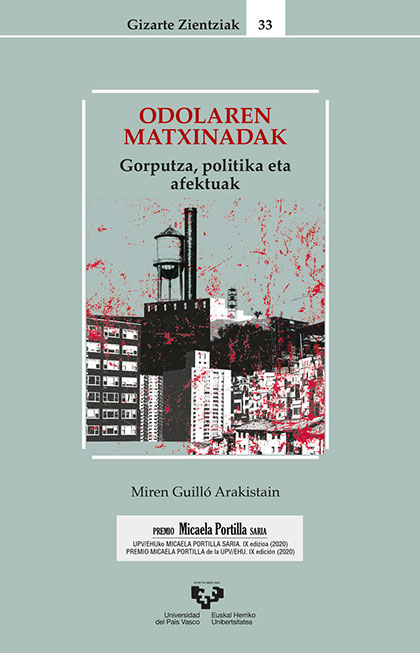"Leslie Feinberg's thesis is that oppressed people should help each other."
- Working class, transgender, lesbian, “mari-mutila”, Jewish, poor -- American activist Leslie Feinberg was the crossroads of the crowd of oppression. In his life, all oppression fought with pride and a thirst for freedom. The transgender Borroka is her second book in Basque. Making history from Joan Arc to Dennis Rodman (Katakrak, 2021). It refers to the place where sex and gender have been affected throughout history and the world, including their questions, experiences and reflections.
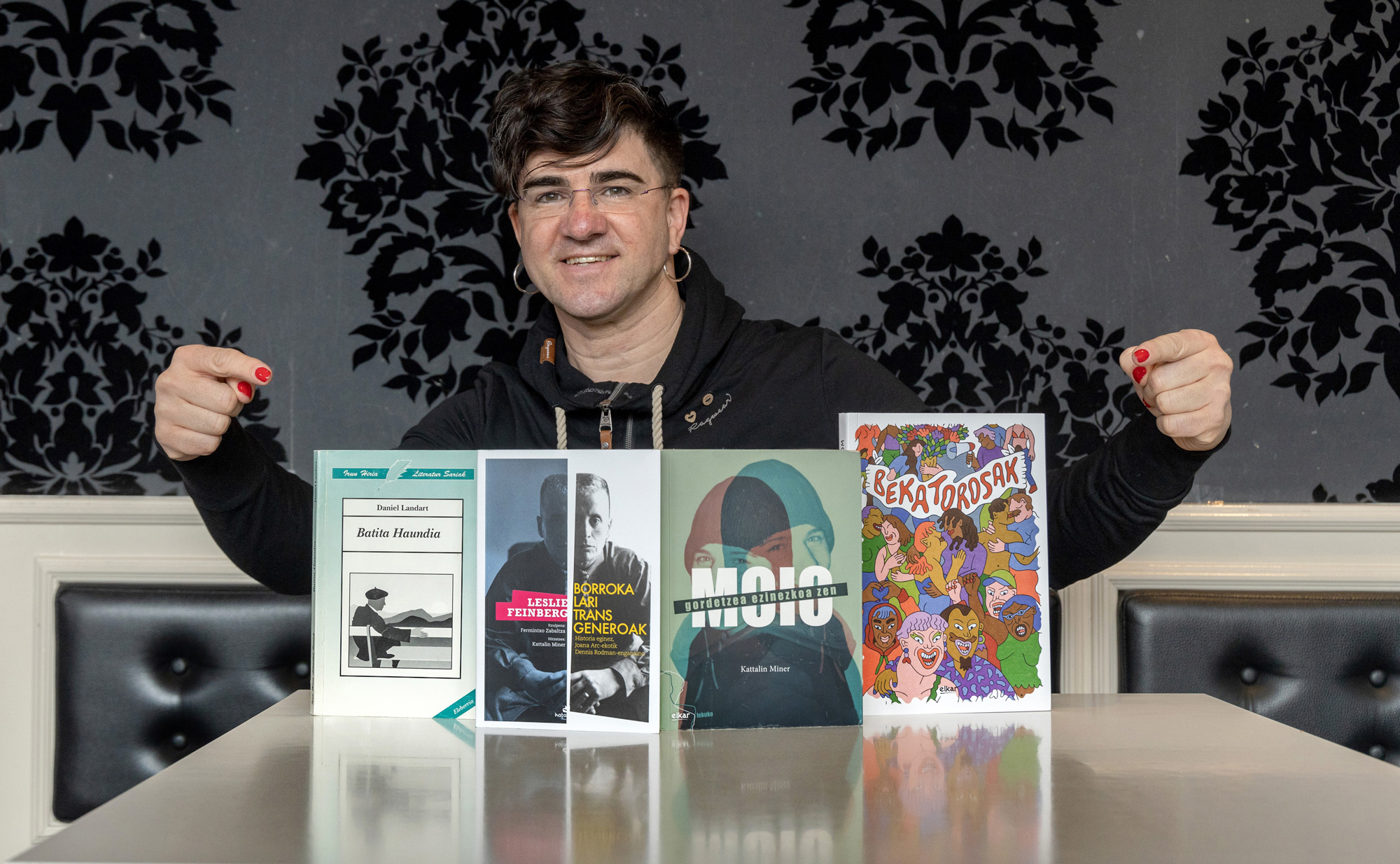
The transgender Borroka is Leslie Feinberg's second book that brings us to the Basque country. Making history, from Juana Arc to Dennis Rodman. We also have the blues of a great boy from Mary. What is your relationship with this writer?
In 1999, I went to London to learn about their trans environment. I went to the Gay's the word LGTB bookstore and asked them what books they had about the transas, when they were very few, and among other things I was recommended by Leslie's. I read the first Transgender Warriors and then Stone Butch Blues. The two of them really liked me, they shocked me, and then they brought me to the Basque country. In fact, only once I have had direct contact with Leslie via email. Now I'm a little embarrassed, but I was quite naively telling him that I really liked his books and that I had to translate them into Basque. He replied that it was an honour to have translated the Basque, that he was in favour of the right of self-determination of the Basques and that he was going to make us a special prologue. But he died in 2014, and I finished these books later.
The blues of a great boy of mary is a novel, but you see it's largely autobiographical. It tells the life of a Mari-boy lesbian in New York State: the poverty lived, the discovery of LGTB bars, her personal trajectory, the oppression suffered, the struggles carried, etc. The transgender fighter in his essay talks about his life and reaffirms what we all perceived: that to some extent the blues of a great boy from Mary is autobiographical. It is also the result of their work throughout their lives. Transak, mari-mutilak, transsexual, investigating the crushing suffered and observing that gender has not been understood in all times and cultures as we understand it today and here. They have always been people who break our gender schemes, but that rupture is today and here, in other cultures or times it was not disruptive and were accepted.
What would you highlight when presenting Feinberg?
He was born in the United States in 1949. It was defined as mari-boy, woman, lesbian, transgender, communist and secular Jew. What I love most is that I associated trans with a lot of other struggles, which I didn't isolate. He was a militant, wrestling person, and his books aren't cold analyses, they're not from an academic, he said he finished college exactly. He said about the terminology used: “My goal is not to define our team, but to defend it.” He fought, on the one hand, because many oppressions affected him directly and on the other, because he was very supportive. For example, he translated some of his books into Hebrew and distributed his benefits to the Palestinians.
He writes the story, the story of trans people and the story of trans people, showing a hidden story.
That's it. Before reading the book I knew, for example, that among the American Indians they had another way of understanding these issues, but when reading the book I saw that it had a great dimension and was not too distant: In Europe and a few centuries ago, there were events that for us are abrasive. In the Pyrenees, in the 19th century, it was the Guerrillas de las Señoritas in favor of communal lands, and men dressed as women to fight. This was the case in Ireland, Wales and many other parts of Europe.
Also in Zuberoa.
Yes, that does not appear in the original book, but we have included in a footnote a mention in the Letter of Exile to Victor Hugo (Katakrak, 2020), in which the struggle for popular lands was also carried out in Zuberoa, where men fought dresses of women.
The book is full of historical data, but it also tells its life.
This research is based on their experiences, which was the starting point of this work: their concerns, their lives.
We have always been but have not always been oppressed. This is one of the main conclusions of Feinberg.
The book reveals that the European colonialists had largely led America and Africa to oppression against trans. The perspective was much more open among Native Americans. We understand that there are two genera, rigid, that cannot be passed from one to the other, but among the Native Americans this was much more flexible, it is said that they had many genera. Many times it was shamans that we called trans, that is, they had a place of prestige. But Feinberg determines that he's white, Western, and he's not able to know exactly what he understands about transactions in other cultures.
It says that surely the societies of ancient times were more egalitarian, the character of trans was more accepted, and that the fragmentation of society began with the accumulation of wealth and heritage. On the way to maintain their power, a rich minority was convinced that society was divided, and then the hatred against women, against transas, against gays and lesbians began ... It was in that rich minority ' s interest that the oppressed should fight against each other, rather than unite against the powerful. The first transphobic writings say they are in Deuteronomy, condemn some practices – The woman will not use the suit of men, nor the man will wear the dress of women, because God is disturbed by what he does” and “will not intervene in the assembly of the Lord who has the crushed testicles or the castrate”. This means that until then these practices existed.
Feinberg was anti-capitalist, working-class and communist.
Born in a low-income Jewish family, he spent his whole life in precarious professions, including his trans character. He was a member of the World Workers' Party. This party is a revolutionary Marxist-Leninist, where it received its ideological formation. Inside the party he received great protection in terms of his trans character.
She also says that the women’s liberation movement brought her a lot.
Feminism opened her eyes. In her research she began to study the roots of female oppression. She read, among other things, a pamphlet by Dorothy Ballan, one of the women who founded the World Workers’ Party, Feminism and Marxism. He read everything written by feminist socialists who investigated the material origin of sexual oppression in the women’s movement. So he learned that the old communal society was very different, and that in it they had a very different place, and much better, the women and the ones we would call trans.
“We all have the right to decide about our bodies and to define ourselves,” says Feinberg.
... without any kind of oppression. It may happen that you hear and think “that is not so important.” But he was crushed over and over again, precisely because he was as he was, for example, wearing pants. He and many others like him paid very expensive – and they continue to pay.
His reflection is very topical and written in 1996.
The conclusion I have drawn is that in EE.UU. The trans movement takes about 20-30 years ahead of us. Mistrust, conflicts and questions that have appeared in the book have come to us 20 to 30 years later and some issues are very topical to us.
That is why translation is also necessary.
Yeah, well, I haven't thought much. I'm a Basque and trans issues matter a lot to me, so it was natural for me to translate to Basque. I have been asked “why not Spanish?” and the answer is “because I am Basque”.
To what extent is there a reflection on transgender and this liberation struggle in Basque?
Less than desired. But sometimes I feel a bit farcical. Because I've translated two books, I've been offered interviews and I meet people who know a lot about literature, but I read very little. Perhaps there is much more in Basque than I believe. I have brought some books that directly or indirectly deal with the LGTB area and that I really liked [at the time of interviewing I have Bekatorosa from Dom Campistron, Moio de Kattalin Miner, impossible to store, Batita haundia from Daniel Landart].
There's a chapter on the relationship between the feminist movement and the struggle for trans liberation. We also have this in the current debates.
In Spain this debate and conflict is very strong. Less, but here too. Leslie defined herself as a woman and trans, so she had both as her struggle. His thesis is that the oppressed should help each other and that no one should be ignored. If we start marginalizing the marginalized so that the powerful recognize us, it will never be enough, and there will always be one to reject. Leslie defended the most oppressed and felt all the fights as his own. Not only was she transgender, she was also a woman, she was poor, she was Jewish ...
It is working-class, communist, but at the same time has intersectional reading. An interesting contribution to the discussion among feminists.
The book "The Trap of Diversity" came out at the level of Spain and says that class struggle is important and the rest of us wake us up. But diversity is there. In addition to engaging in precarious work, Feinberg was crushed by his clothing, by loving what he loved, by being a Jew… He was as he was and suffered many pressures for being a worker, even for other reasons. There is also diversity in the working class.
The book is an annotation of the importance of fighting. An honor of the struggle.
The book has emerged from the viscera, it is a lot of work and it is an appeal to the struggle. Fighting for direct reasons and for the oppressed has been the attitude of his life and has written this book of that existence. In the bluesa of a great boy of mary you could think he was very fatalistic, but the transgender Borroka is a more joyful, positive book. It does not say “there is something to do”, but let’s do.
Guardasol gorria
Lutxo Egia
Susa, 2024
Under the asphalt, the flower
Text: Monica Rodriguez
Illustrations: Rocío Araya translation
of: Itziar Ulcerati
A fin de cuentos, 2025
Ereserkiek, kanta-modalitate zehatz, eder eta arriskutsu horiek, komunitate bati zuzentzea izan ohi dute helburu. “Ene aberri eta sasoiko lagunok”, hasten da Sarrionandiaren poema ezaguna. Ereserki bat da, jakina: horra nori zuzentzen zaion tonu solemnean, handitxo... [+]
Perhaps we could say that this text is the result of an appraisal meeting. However, valuation meetings often leave a dry and bittersweet taste in the mouth. It's a sunny Tuesday afternoon. 16:53. We've connected to the valuation meeting, and we've decided to put a lemon candy in... [+]
Odolaren matxinadak. Gorputza, politika eta afektuak
Miren Guilló
EHU, 2024
Miren Guilló antropologoaren saiakera berria argitaratu du EHUk. Odolaren matxinada da izenburu... [+]












